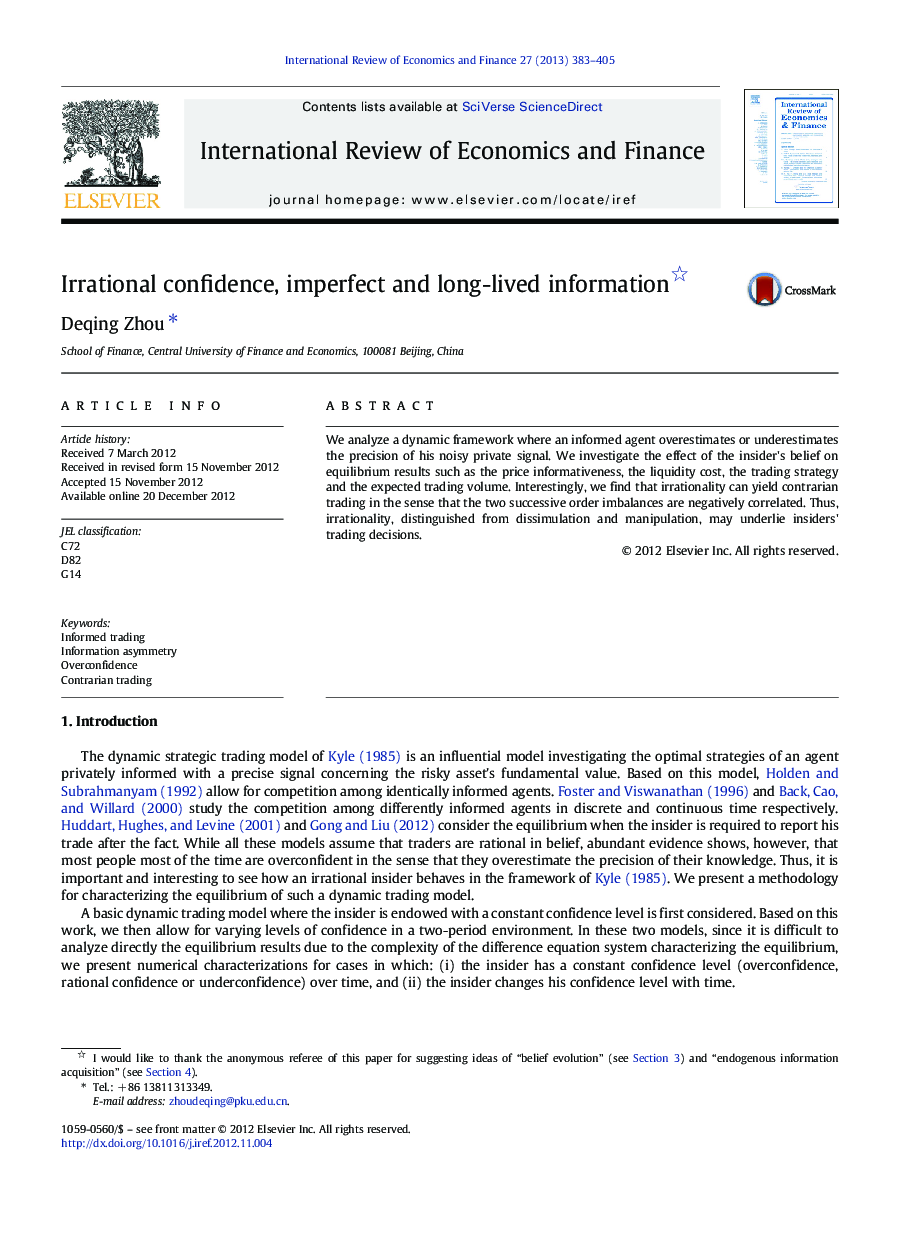| Article ID | Journal | Published Year | Pages | File Type |
|---|---|---|---|---|
| 5083730 | International Review of Economics & Finance | 2013 | 23 Pages |
We analyze a dynamic framework where an informed agent overestimates or underestimates the precision of his noisy private signal. We investigate the effect of the insider's belief on equilibrium results such as the price informativeness, the liquidity cost, the trading strategy and the expected trading volume. Interestingly, we find that irrationality can yield contrarian trading in the sense that the two successive order imbalances are negatively correlated. Thus, irrationality, distinguished from dissimulation and manipulation, may underlie insiders' trading decisions.
⺠We model an insider who might be overconfident. ⺠We examine impacts of the confidence degree on equilibrium. ⺠The market efficiency is improved when the insider is overconfident. ⺠A contrarian trading pattern arises due to the insider's irrationality.
